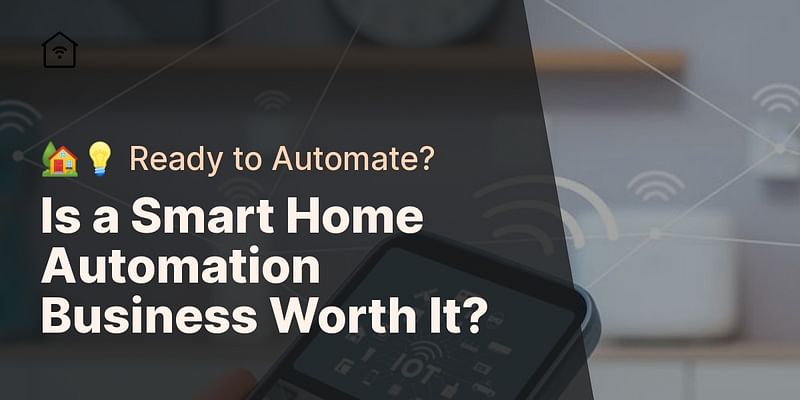Lawson is a seasoned software developer with a keen interest in home automation technologies. He thrives on experimenting with innovative devices and designing bespoke integrations to maximize home efficiency.
Starting a smart home automation business can be a great idea for tech enthusiasts looking to turn their passion into a profitable venture. With the increasing popularity of smart home devices and the growing demand for automation solutions, there is a significant opportunity in this industry. However, like any business, it requires careful planning, research, and execution to ensure success.
One of the key advantages of starting a smart home automation business is the potential for high profitability. As more and more homeowners embrace the convenience and energy-saving benefits of smart home technology, the demand for professional installation and integration services is on the rise. By offering your expertise in setting up and configuring smart devices, you can tap into this market and generate a steady stream of revenue.
To get started, you'll need to invest in the right devices and software for your business. There are a wide variety of smart home devices available on the market, ranging from smart thermostats and lighting systems to security cameras and voice assistants. It's important to research and select the best devices that align with your target market and offer the most value to your customers.
In terms of software, there are several options available for smart home automation. Some popular choices include open-source platforms like OpenHAB and Home Assistant, as well as commercial solutions like Control4 and Crestron. These software platforms provide the necessary tools for managing and controlling smart devices in a home automation setup. It's important to choose a software solution that is user-friendly, reliable, and offers the features and integrations you need to deliver a seamless experience to your customers.
In addition to devices and software, you'll also need to consider the technical aspects of setting up a smart home automation business. This includes understanding networking protocols like Z-Wave and Zigbee, as well as having a solid understanding of home automation principles and best practices. It may be beneficial to pursue certifications or training programs in home automation to enhance your skills and credibility as a professional in the field.
Marketing and customer acquisition will also play a crucial role in the success of your smart home automation business. Utilize online platforms and social media to showcase your expertise and attract potential customers. Consider offering free consultations or demos to demonstrate the value of your services. Additionally, partnering with local contractors or home builders can help you reach a wider audience and generate referrals.
Starting a smart home automation business can be a rewarding venture for tech enthusiasts. By leveraging your passion for technology and providing valuable services to homeowners, you can create a profitable business in this rapidly growing industry. With the right devices, software, and marketing strategies, you can establish yourself as a trusted expert in smart home automation and build a loyal customer base. So, if you're ready to turn your love for smart home technology into a business, now is the perfect time to get started!















